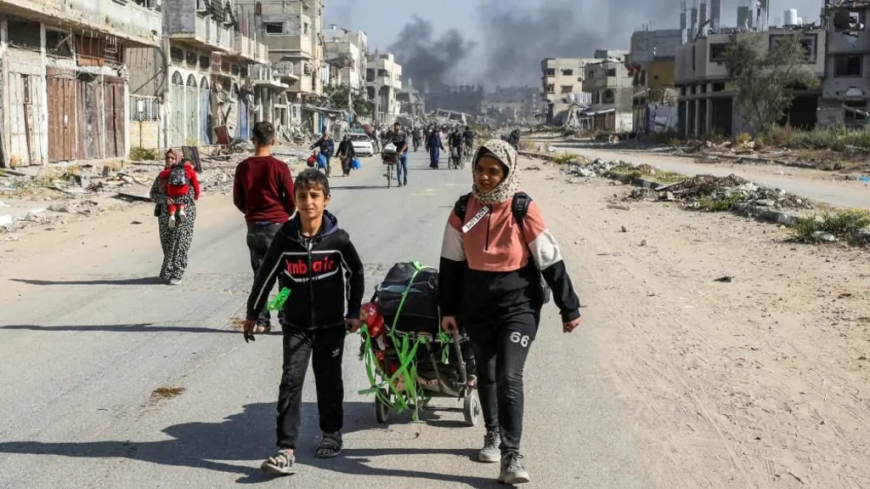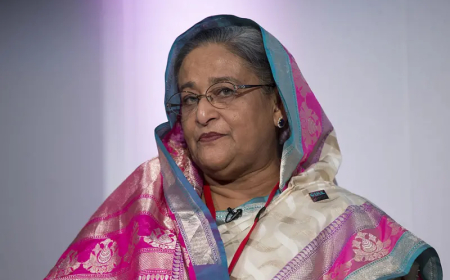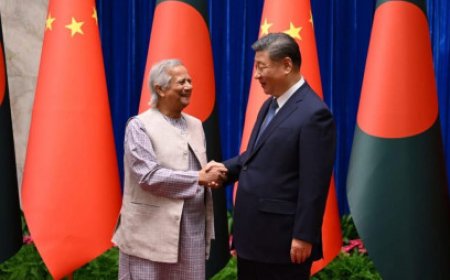What we know about the Gaza ceasefire deal
Israel and Hamas are thought to be close to agreeing a deal which could halt the war in Gaza and see the release of Israeli hostages and Palestinian prisoners

Israel and Hamas are thought to be close to agreeing a deal which could halt the war in Gaza and see the release of Israeli hostages and Palestinian prisoners.
The BBC's US partner CBS has been told by Arab, US and Israeli officials that an agreement has been reached in principle and, if all goes well, will be finalised by Israel and Hamas this week.
It would be the most dramatic breakthrough in 15 months of war, which began when the armed Palestinian group Hamas attacked Israel in October 2023...
Almost all Gaza's population has been displaced by the war
Israel and Hamas are thought to be close to agreeing a deal which could halt the war in Gaza and see the release of Israeli hostages and Palestinian prisoners.
The BBC's US partner CBS has been told by Arab, US and Israeli officials that an agreement has been reached in principle and, if all goes well, will be finalised by Israel and Hamas this week.
It would be the most dramatic breakthrough in 15 months of war, which began when the armed Palestinian group Hamas attacked Israel in October 2023.
What could be in a ceasefire deal between Israel and Hamas?
It is hoped that a ceasefire deal will mean an agreement to stop the war which has been raging in Gaza.
It is also expected to see an exchange of hostages and prisoners.
Hamas seized 251 hostages when it attacked Israel in October 2023. It is still holding 94 captive, although Israel believes that only 60 are still alive.
Israel is expected to release about 1,000 Palestinian prisoners, some jailed for years, in return for the hostages.
Why is there a war in Gaza?
How would the ceasefire work?
This ceasefire is expected to happen in three stages, once a deal is announced.
Details are still being ironed out. Until an agreement is finalised, it is subject to change.
First stage
Israeli government spokesperson David Mencer said that 33 hostages - expected to be women, children, the elderly and the sick or injured - would be exchanged for Palestinian prisoners. Mr Mencer said that most but not all of the 33 hostages are thought to still be alive.
Three hostages would be released straight away, a Palestinian official told the BBC, with the rest of the exchange taking place over six weeks.
During this stage, Israeli troops would also begin pulling out of populated areas in Gaza.
The Palestinian official said detailed negotiations for the second and third stages would begin on the 16th day of the ceasefire.
Second stage
In the second stage, the remaining hostages - soldiers and reservists - would be released, in return for another release of Palestinian prisoners.
Of the 1,000 Palestinian prisoners Israel is thought to have agreed to release, about 190 are serving sentences of 15 years or more. An Israeli official told the BBC that those convicted of murder would not be released into the occupied West Bank.
During this stage, Israel would also allow displaced people now in the south of Gaza to return to the north.
Almost all of Gaza's 2.3 million population have had to leave their homes because of the fighting.
Third stage
The third and final stage would involve the reconstruction of Gaza - something which could take years.
The Israeli official said Israeli forces would remain in a buffer, or security, zone inside





















































